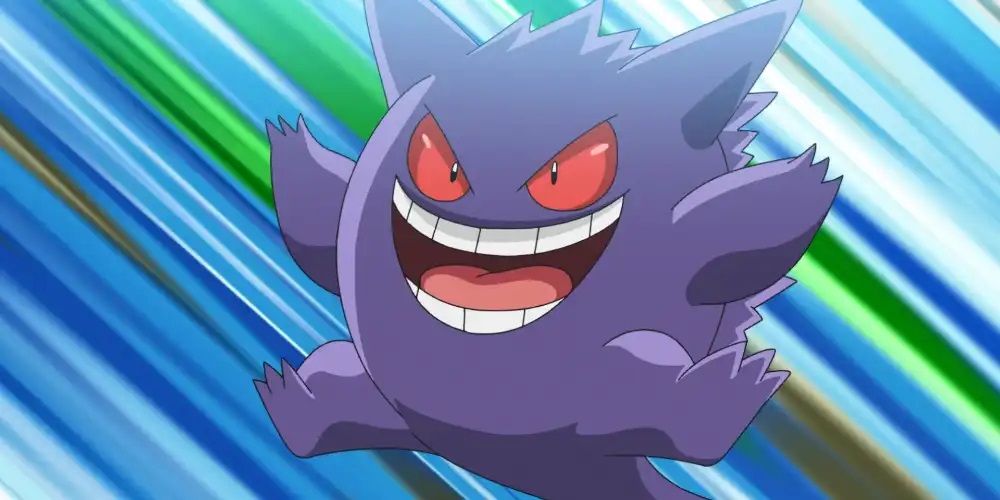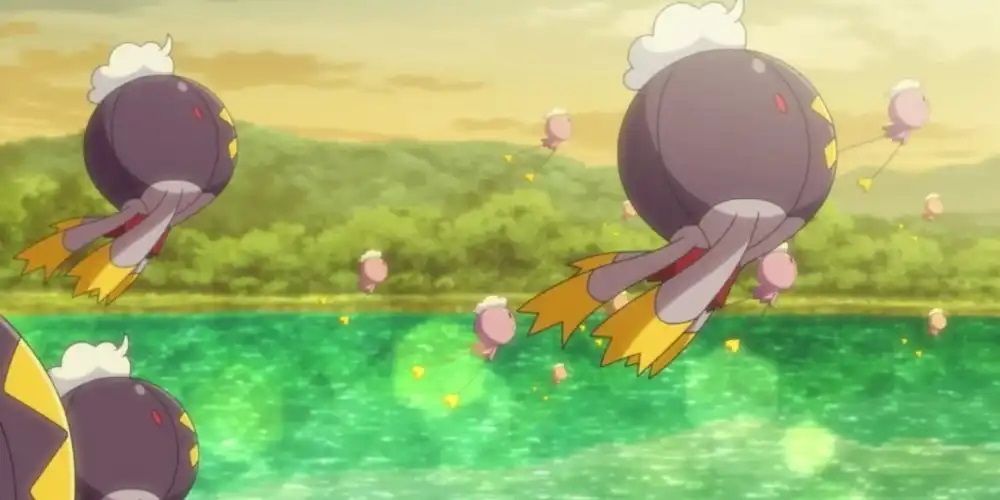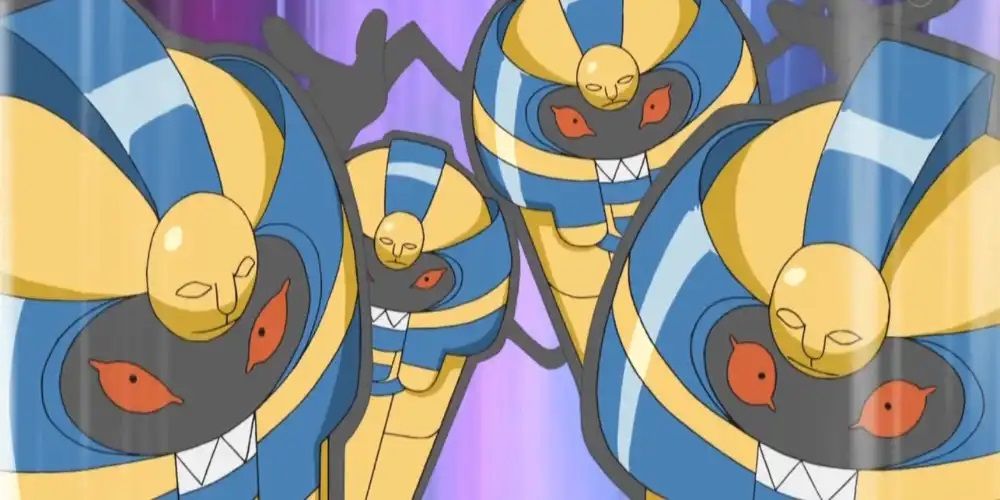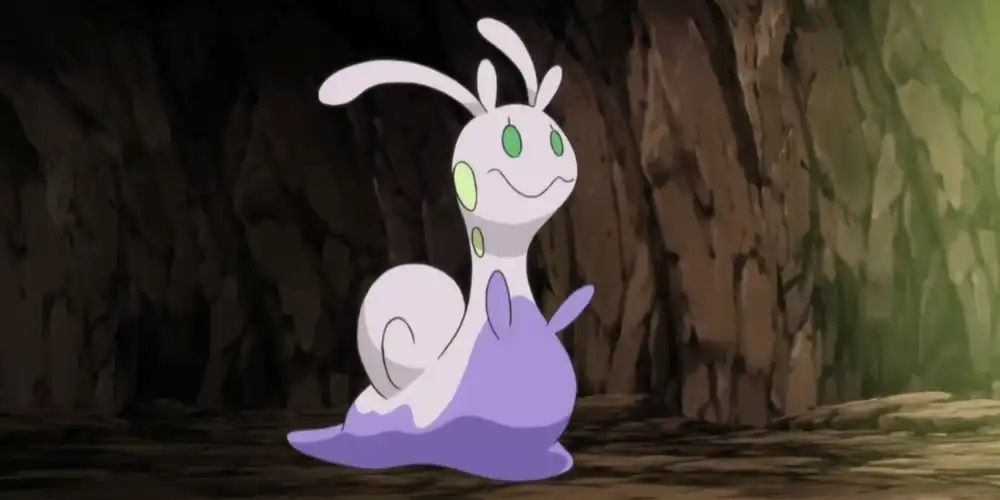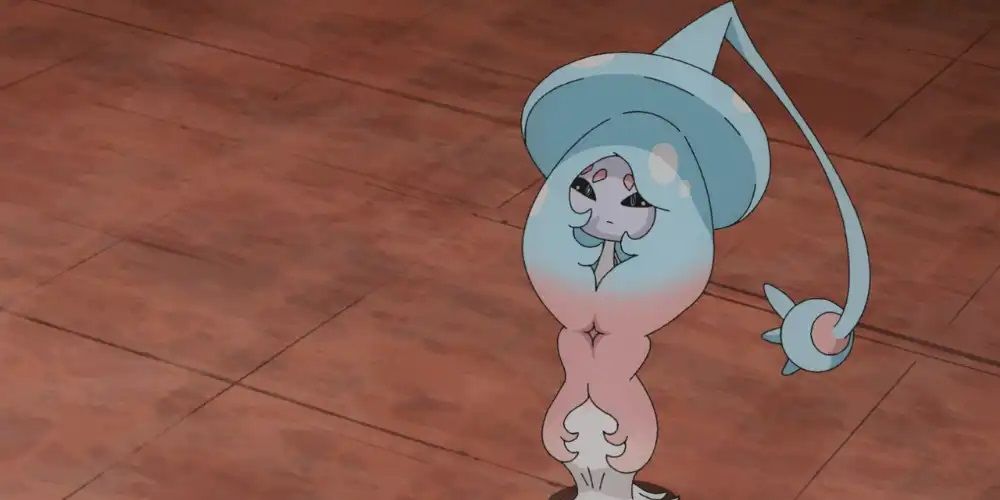In the world of Pokémon, aspiring Pokémon trainers have a number of different goals they can aspire to reach. One of these is completing the Pokédex, an electronic encyclopedia that records information on every Pokémon species. First invented by Professor Oak of the Kanto region, the Pokedex has spread to every region of Pokémon and taken on several different styles, including compatibility with the Electric and Ghost-type Pokémon, Rotom.
However, not all the data recorded in the Pokédex is comforting. While there are many exciting facts and secrets to be held, some entries paint a dark and disturbing picture of the otherwise bright and cheery world of Pokémon.
Parasect
Within the forests and caves of the Pokémon world lives Paras, a little Bug and Grass-type with a voracious appetite. This is because of the mushrooms that grow on its back: when Paras eat, the mushroom saps the majority of the nutrients for itself. Things only get worse when it evolves.
As a Parasect, the mushroom has nearly killed its host, granting it total control over the Pokémon’s actions. Swarms of Parasect will latch onto tree roots until they have been wholly drained before moving to the next and scattering toxic spores. Removing the mushroom won’t help: without direction, the poor Parasect lies unmoving until it’s put out of its misery.
Victreebel
Despite its silly and lanky design, Bellsprout is an agile hunter that can chase down and trap prey. Upon evolution to Weepinbell, it loses its agility and becomes a stationary hunter that spits corrosive acid at anything that comes by. Fortunately, to evolve again, it requires a rare leaf stone because its final form has the most sinister hunting methods.
A giant, sentient pitcher plant, Victreebel hunts by luring prey in close with a sweet-smelling fragrance that spreads with its vines. Once its prey comes close, the vines pull them into the waiting mouth, where they are slowly digested alive. Victreebel is said to live in colonies deep in the jungle, but they’ve never been documented.
Gengar
While many Ghost-type Pokémon have fittingly spooky Pokédex entries, one of the most iconic comes from the Ghastly line of the original 151. As it evolves into Haunter, they begin to prey on the life force of anyone they can before slipping away, thanks to their gaseous form. If traded to another trainer, Haunter can finally grow legs as it ascends into a Gengar.
Renegade Gengar is described as among the most dangerous Ghost and Poison-type Pokémon. They like to hide inside the shadows of people, where they slowly sap away their life force. It’s also rumored that humans can become Gengar on their death, and the Gengar do this to make more of them.
Beautifly
Like most Bug-type Pokémon, Wurmple is weak and easily captured by young trainers starting on their journeys. Upon evolution, it becomes either a Silcoon or a Cascoon at random. From there, a Silcoon becomes the butterfly-like Beautifly active during the day, and a Cascoon becomes the moth-like Dustox active at night.
Despite looking like a butterfly, Beautifly is a vicious predator. While nectar is its favorite food, it also uses its long proboscis to drain living prey of its fluids. Beautifly is also hyper-aggressive when it comes to their nectar and won’t hesitate to attack anyone that comes close to their territory to hoard all the nectar for themselves.
Driflblim
Drifloon is an adorable Ghost and Flying-type that looks like a balloon. Even before evolving, this Pokémon shows its dark nature by kidnapping children who grab hold of its string and taking them to the afterlife. Upon evolution, Drifblim expands its list of victims.
At dusk, Drifblim floats lazily across the sky, filled with the souls of the departed burdened with regret. As the sun rises, it releases these spirits to the afterlife and becomes drowsy and lethargic until the sun sets. Perhaps most eerily, flocks of Drifblim are capable of vanishing when seen from the ground, which has sprung a rumor that if you see one at dusk, it will take you to the afterlife as well.
Froslass
Hidden within the coldest regions of the Pokémon world lives the pure Ice type, Snorunt. Though their coming often foretells freezing temperatures, they are friendly, and inviting one into your home is said to bring good luck. However, should a female Snorunt find a Dawnstone, it leaves behind its friendly disposition and becomes a vengeful Ghost type.
Froslass prey upon travelers lost in freezing conditions, tormenting them with cold weather until they die so that she can feed on their frozen souls. If the Froslass took a liking to her victim, she also takes the body back to her frozen lair, where she uses ice to sculpt it into a macabre decoration. During blizzards, Froslass attempts to prey upon people’s compassion by knocking on their doors, hoping to freeze them in their homes when they open.
Cofagrigus
In the ruins of the Unova region dwell Yamask, a peculiar Ghost-type that carries a mask with it. This mask is said to be the face it had in life when it was human. Yamask tries its hardest to cling to its fleeting humanity, but it loses it entirely upon evolution.
As a Cofagrigus, this Ghost-type loses what memories of humanity it had, replacing it with a desire for treasure. It hoards as much ancient gold as possible, which it devours as a treat. It also uses the treasure as bait for would-be treasure hunters, which Cofagrigus trap within their bodies and transform into mummies while still alive.
Sliggoo
The adorable slug-dragon, Goomy, happily frolics in marshlands waiting for a trainer that will help it evolve. Eventually, this leads to Goodra, one of the coveted pseudo-legendary Pokémon, who rewards its trainer with lots of hugs. But first, Goomy turns into the snail-like Sliggoo, which comes with a host of problems.
Upon evolution, Sliggoo’s eyes devolve, and their brains simplify to a desire to find food and evade predators. As such, it coats its body in a corrosive slime which acts as a defense and hunting method. This can lead to a Sliggoo trying to liquefy and drink its friends since it can’t tell the difference between friends and food.
Palossand
When the spirit of the dead possesses a sand mound, it can become the Ghost and Ground-type Sandygast. Fueled by grudges and hatred, it tricks people into placing their hands inside its mouth to take possession of them. It then forces people to add more sand to its body, which helps to fuel its evolution.
Now a living sand castle, Palossand rewards its brainwashed servants by sucking out their souls. With their bones buried in the beach, Palossand waits for its next victim, which it traps using blinding sandstorms before pulling them under the sand. This has granted it the nickname of the Beach Nightmare.
Hatterene
One of the rarest Pokémon species native to the Galar region is the Hatenna family. These reclusive Psychic-types can sense people’s emotions, so they prefer to live far away from humans not to get overwhelmed by negative emotions. As it evolves into Hattrem and then Hatterene, it switches from flight to fight.
The new Fairy-typing and witch-inspired design do nothing to improve Hatterene’s opinion of people. Now annoyed by noise and emotions, Hatterene uses her psychic abilities to induce headaches to drive people away or tear them apart with her clawed tentacle if that fails. Hatterene is also one of the few Pokémon able to Gigantimax in certain places in the Galar, enhancing her powers to sense negative emotions and attack up to 30 miles away.
Stay connected with us on social media platform for instant update click here to join our Twitter, & Facebook
We are now on Telegram. Click here to join our channel (@TechiUpdate) and stay updated with the latest Technology headlines.
For all the latest Gaming News Click Here



